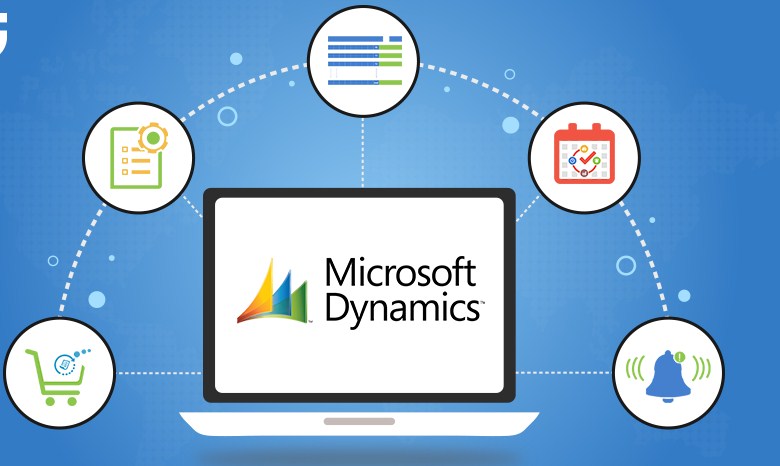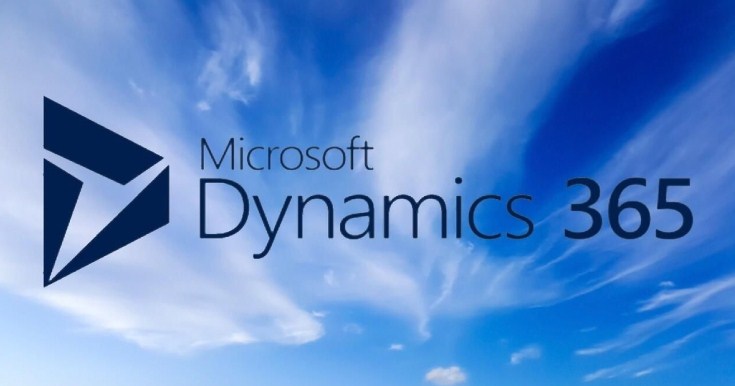Microsoft Dynamics CRM applications have become an indispensable tool for businesses looking to streamline their customer relationship management (CRM) processes. These dynamic solutions enable organizations to manage sales, customer service, and marketing efforts seamlessly, driving both productivity and growth. Whether you’re a small business or a large enterprise, Microsoft Dynamics CRM applications can offer tailored solutions to fit your needs. In this article, we will dive into the benefits, key features, real-world examples, and more, so you can make an informed decision.

What is Microsoft Dynamics CRM?
Microsoft Dynamics CRM is a suite of customer relationship management applications designed to help businesses of all sizes manage customer data, streamline operations, and improve relationships with customers. Built on the Microsoft platform, it integrates seamlessly with other Microsoft products like Office 365, Power BI, and Azure, providing a comprehensive solution for businesses.
These CRM applications are highly customizable, allowing companies to tailor the system to their specific needs. Whether you are looking to improve sales performance, automate customer service workflows, or track marketing campaigns, Dynamics CRM provides a complete set of tools to enhance your business processes.
The Key Benefits of Microsoft Dynamics CRM Applications
Microsoft Dynamics CRM applications offer a wide range of benefits that can help businesses thrive in a competitive landscape. Let’s take a look at some of the core benefits that can transform your operations.
1. Enhanced Customer Insights
By collecting and analyzing customer data from multiple touchpoints, Microsoft Dynamics CRM helps businesses understand their customers better. This 360-degree view of customer interactions allows businesses to deliver personalized experiences and make data-driven decisions.
2. Improved Sales Efficiency
Microsoft Dynamics CRM enables sales teams to manage leads, track opportunities, and close deals faster. With AI-powered insights, sales representatives can prioritize leads that are more likely to convert, improving overall sales productivity.
3. Streamlined Customer Service
Dynamics CRM offers tools to help customer service teams resolve issues faster and more efficiently. The application provides case management, knowledge bases, and chatbots, empowering agents to offer seamless support.
4. Customization and Flexibility
One of the standout features of Microsoft Dynamics CRM is its adaptability. Whether you need custom workflows, integration with third-party tools, or specific reporting features, Dynamics CRM can be tailored to suit your business needs.
5. Enhanced Collaboration Across Teams
With Microsoft Dynamics CRM, your teams can collaborate effortlessly. Sales, marketing, and customer service teams can share insights and data to align their efforts, improving communication and driving better business outcomes.
Real-World Examples of Microsoft Dynamics CRM Applications in Action

1. Microsoft Dynamics 365 Sales
Microsoft Dynamics 365 Sales is a powerful tool for businesses looking to enhance their sales process. It helps businesses manage leads, track opportunities, and build lasting relationships with customers. The application also provides AI-driven insights to improve sales strategies and make better decisions.
- Pros:
- Easy integration with Office 365
- AI-powered insights
- Seamless collaboration across teams
- Cons:
- Requires a learning curve for new users
- Can be expensive for small businesses
- Price: Starts at $65 per user per month
- Key Features:
- Opportunity management
- AI-driven analytics
- Integration with Microsoft Teams
2. Microsoft Dynamics 365 Customer Service
This CRM application is designed to help organizations deliver exceptional customer service. It offers tools such as case management, service level agreements, and automated workflows to ensure customer issues are resolved quickly.
- Pros:
- Powerful case management tools
- Knowledge base integration
- Omnichannel support (chat, email, phone)
- Cons:
- High cost for smaller companies
- Complex setup
- Price: Starts at $50 per user per month
- Key Features:
- Knowledge management
- Service level agreements
- Chatbot automation
3. Microsoft Dynamics 365 Marketing
For businesses aiming to streamline their marketing efforts, Microsoft Dynamics 365 Marketing provides a comprehensive suite of tools. From customer segmentation to campaign automation, it helps businesses create personalized and impactful marketing campaigns.
- Pros:
- Customizable marketing workflows
- Automated email marketing
- Deep integration with Dynamics 365 Sales
- Cons:
- May be too complex for small businesses
- Limited third-party integrations
- Price: Starts at $1,500 per month (for 10,000 contacts)
- Key Features:
- Marketing automation
- Customer journey tracking
- Event management
4. Microsoft Dynamics 365 Field Service
Microsoft Dynamics 365 Field Service is designed for businesses that need to manage field operations and services. It helps companies manage schedules, dispatch technicians, and maintain inventory across multiple locations.
- Pros:
- Real-time scheduling and dispatch
- Inventory management
- Predictive maintenance
- Cons:
- High implementation costs
- Limited customization options
- Price: Starts at $95 per user per month
- Key Features:
- Predictive analytics
- IoT integrations
- Work order management
5. Microsoft Power Automate
Although not a CRM application per se, Power Automate enhances Dynamics CRM applications by automating workflows. It helps businesses streamline repetitive tasks, saving time and reducing errors.
- Pros:
- Automation of repetitive tasks
- Integration with hundreds of apps
- Time-saving functionality
- Cons:
- Limited customization for complex processes
- Can be expensive at scale
- Price: Starts at $15 per user per month
- Key Features:
- Workflow automation
- Integration with Microsoft 365
- Robotic process automation
Comparison Table: Dynamics CRM Applications
| Product Name | Use Case | Price (Starting) | Pros | Cons | Key Features |
|---|---|---|---|---|---|
| Dynamics 365 Sales | Sales automation | $65/month/user | Easy integration with Office 365, AI-driven insights | Expensive for small businesses | Opportunity management, AI analytics |
| Dynamics 365 Customer Service | Customer service management | $50/month/user | Omnichannel support, case management | High cost, complex setup | Knowledge management, SLA tracking |
| Dynamics 365 Marketing | Marketing automation | $1,500/month (10K contacts) | Deep integration with Sales, customizable workflows | Complex, limited integrations | Campaign automation, customer journey |
| Dynamics 365 Field Service | Field service management | $95/month/user | Real-time scheduling, IoT integration | Expensive, limited customization | Work order management, predictive maintenance |
| Power Automate | Workflow automation | $15/month/user | Automates repetitive tasks, saves time | Limited customization | Workflow automation, RPA integration |
Where to Buy Microsoft Dynamics CRM Applications and How Much Do They Cost?
How to Buy
You can purchase Microsoft Dynamics CRM applications directly from the official Microsoft website or through an authorized Microsoft reseller. For businesses looking for custom solutions, Microsoft offers flexible pricing and deployment options, including cloud-based subscriptions.
Click the links below to buy Microsoft Dynamics CRM applications:
- Buy Microsoft Dynamics 365 Sales
- Buy Microsoft Dynamics 365 Customer Service
- Buy Microsoft Dynamics 365 Marketing
Price Overview
- Dynamics 365 Sales: Starts at $65 per user/month.
- Dynamics 365 Customer Service: Starts at $50 per user/month.
- Dynamics 365 Marketing: Starts at $1,500 per month (for 10,000 contacts).
- Dynamics 365 Field Service: Starts at $95 per user/month.
Common Use Cases and Problems Solved with Microsoft Dynamics CRM 🛠️
Microsoft Dynamics CRM applications address a wide range of challenges faced by businesses today:
- Inefficient Sales Process: Dynamics 365 Sales helps sales teams manage leads, track opportunities, and close deals more efficiently, ultimately driving revenue.
- Poor Customer Support: Dynamics 365 Customer Service improves customer service workflows, ensuring timely issue resolution and higher customer satisfaction.
- Manual Marketing Campaigns: Dynamics 365 Marketing automates campaign workflows, allowing marketing teams to focus on strategy while the system handles execution.
- Field Service Management Issues: Dynamics 365 Field Service streamlines field operations by improving scheduling, dispatching, and inventory management.
FAQs
1. What is the difference between Microsoft Dynamics CRM and Dynamics 365?
- Microsoft Dynamics CRM is a legacy system, while Dynamics 365 is the modern, integrated suite that combines both CRM and ERP functionalities.
2. Is Microsoft Dynamics CRM suitable for small businesses?
- Yes, Dynamics CRM offers scalable pricing and flexible deployment options that make it suitable for small to large businesses.
3. How can I integrate Microsoft Dynamics CRM with other software?
- Microsoft Dynamics CRM offers extensive integration capabilities, including pre-built connectors to third-party apps and seamless integration with Microsoft tools like Teams, Power BI, and Office 365.
4. Can I try Microsoft Dynamics CRM before purchasing?
- Yes, Microsoft offers free trials of Dynamics 365 applications, so you can explore the features before making a purchase.
5. What support options are available for Microsoft Dynamics CRM?
- Microsoft provides comprehensive support through its help portal, community forums, and customer service teams. Additionally, third-party support options are available.
By following this comprehensive guide, you’ll be well-equipped to explore the full capabilities of Microsoft Dynamics CRM applications and make the best decision for your business!
Read More >>>
- Microsoft Dynamics CRM App: Features, Benefits, and Where to Buy
- Comprehensive Guide to Benefits, Solutions, and How to Buy